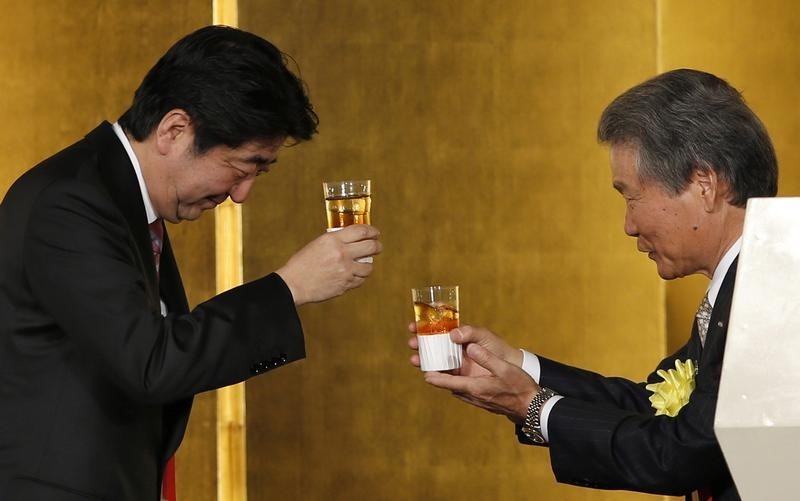By Tetsushi Kajimoto
TOKYO (Reuters) - Japan's biggest business lobby forecast on Thursday that capital spending could grow 14 percent over the next three years if the government adopts sweeping reforms, including a swift cut in the corporate tax rate.
The ambitious projection - for capital spending to hit 81.7 trillion yen (441 billion pounds) in the fiscal year that starts from April 2018 - was presented by Keidanren during a meeting between cabinet ministers and business leaders.
Such a level would be the highest since before the global financial crisis.
Prime Minister Shinzo Abe is piling pressure on companies to increase investment and raise pay to spur economic growth, as his "Abenomics" recipe of monetary stimulus, public spending and reform continues to struggle for traction.
"Whether we can achieve a virtuous growth cycle depends on capital expenditures and wage hikes," Abe told the joint meeting. "I highly appreciate the stance that was shown by the business circles. I expect them to carry it out steadily."
Keidanren said it would urge companies which reported stronger profits to offer bigger wages increases at next spring's labour-management talks than they did this year, with an eye on the government's aim for nominal 3 percent growth.
Sadayuki Sakakibara, chairman of Keidanren, also demanded that the government quickly lower the effective corporate tax rate - among the developed world's highest - to below 30 percent.
"We want the tax rate to fall below 30 percent next fiscal year and want it to be 25 percent as early as possible. If it is realised swiftly, that would accelerate investment," he told reporters.
The government cut the corporate tax rate to 32.11 percent in the current fiscal year from last year's 34.62 percent, and plans to reduce it to 31.33 percent next fiscal year.
Abe said the tax rate would be cut more than planned next fiscal year, paving the way for it drop below 30 percent earlier. He asked businesses to cooperate to help the government secure tax revenue sources needed to implement the corporate tax reform.
The amount of cash Japanese companies have amassed has increased since Abe took office in December 2012.
Government data showed corporate internal reserves stood at 350 trillion yen in the fiscal year ended March 2015, versus 300 trillion yen two years earlier.
In comparison, capital spending stood at about 70 trillion yen currently, up about 5 trillion yen in the past three years but still far below 76.8 trillion yen seen before the collapse of Lehman Brothers triggered the global crisis.
